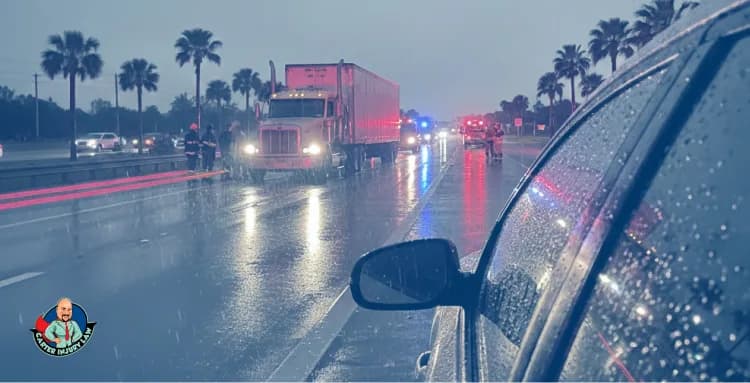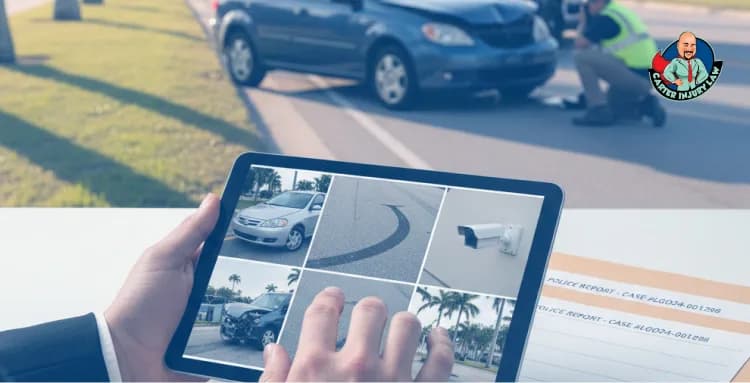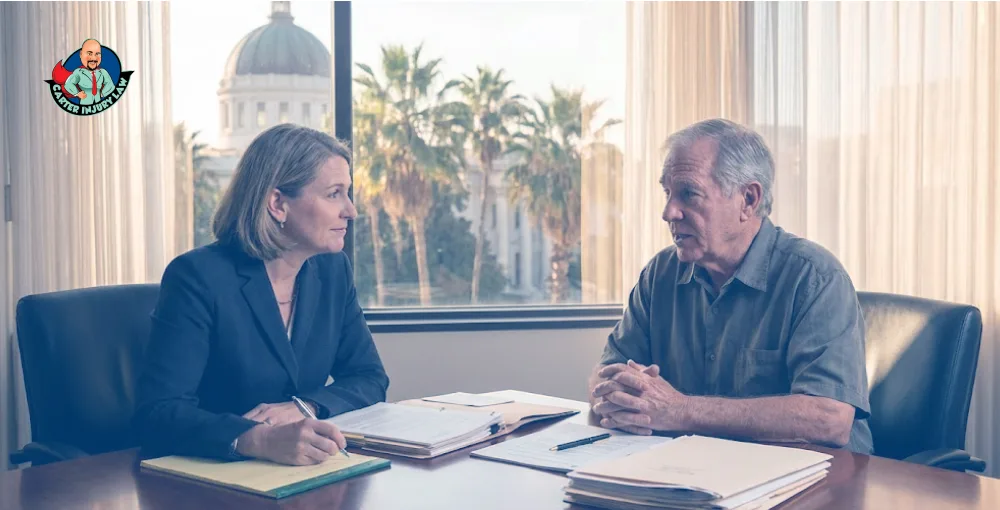Some injuries hit harder than just pain. They come with paperwork, lost wages, and a pile of questions no one really prepares you for. In Florida, workers’ comp is supposed to help, but figuring out what your case is actually worth can feel like guessing in the dark. Is it based on your medical bills? The time you’ve missed from work? Or something else entirely?
There’s a formula behind it but it’s not as evident as people think. And if you don’t know how the system works, you could be walking away with far less than you rightfully deserve.
So before you settle for a number that sounds “good enough”... let’s talk about what actually impacts the value of your case.
1) The Basics of Workers’ Compensation in Florida
Florida’s workers’ compensation system was built to protect employees after an injury, covering medical care and a portion of your lost wages while you recover. It’s not a lawsuit, and it doesn’t require you to prove your employer did anything wrong. If you were hurt on the job, and your employer carries coverage, the benefits are supposed to kick in automatically.
Covered injuries can range from sudden accidents, like a fall or machinery injury, to repetitive strain or occupational illness that builds up over time. Even psychological conditions might be covered in certain high-stress professions, though those claims are more complex and harder to prove.
According to the Florida Division of Workers’ Compensation, over 50,000 new work-related injury claims were filed in 2023 alone. Most involved sprains, fractures, and wounds from slips or equipment-related incidents. But just because an injury is common doesn’t mean your case will look like someone else’s. The value depends on far more than just what happened.
Let’s break down the facts that actually shape the value of a Florida workers’ compensation case.
2) Reasons That Drive the Value of Your Workers’ Compensation Case
Every case starts with the injury, but what really shapes the value is what comes after. Medical treatment is the first piece. That includes doctor visits, surgeries, therapy, prescriptions, and sometimes long-term rehab. If you need care into the future, that projected cost gets factored in too.
Then there’s your ability to work. If you’re off the job temporarily, the benefits are based on a percentage of your average weekly wage. However, if the injury leaves you with lasting limitations or prevents you from returning to your job altogether, the compensation shifts. Permanent impairment, partial or total, increases the value significantly. According to the National Academy of Social Insurance, the average benefit paid for lost wages in Florida was roughly $580 per week in 2023, though serious injuries often exceed that range.
And workers’ comp doesn’t pay for pain and suffering. No matter how life-altering the injury feels, the system sticks to a formula focused on wages and medical costs. That’s why cases involving permanent damage or third-party claims often open the door to additional compensation.
So how do some claims grow much larger than others? Let’s look at why some cases settle high and others settle fast for less.
3) Why Some Cases Result in Larger Settlements
Some cases settle for modest amounts, while others stretch into six figures. The difference usually comes down to how badly someone was hurt, how long the effects last, and how many layers the claim has.
If the injury causes permanent damage, especially to a critical area like your spine, hands, or legs, the settlement goes up. Because the system recognizes that your ability to earn a living may never be the same.
Quality of life matters too. If your injury prevents you from doing your regular job or forces a major career shift, the value reflects that change. You’re losing income and options. That carries weight.
Then there are claims with added complexity. If someone other than your employer contributed to the injury, you could have a separate third-party lawsuit on top of the workers’ comp claim. Those cases often lead to much larger recoveries. According to case studies published in the Florida Bar Journal, third-party liability claims significantly increase total compensation, especially when permanent injuries are involved.
But with more moving parts comes more risk. Small mistakes can cost you big. So next, let’s look at the errors that quietly chip away at even the strongest cases.
4) Common Mistakes That Can Lower Your Case Value
One of the biggest mistakes is waiting too long to report the injury. Florida law gives you 30 days, but waiting even a week can raise questions about whether the injury really happened at work.
Another issue? Not sticking with your treatment plan. If you skip follow-up appointments or ignore medical advice, the insurance company may argue that you’re not as injured as you claim or worse, that you made things worse on your own.
And then there’s social media. A single post, photo, or comment taken out of context can seriously damage your credibility. If you say you can’t lift heavy things but your profile shows you helping a friend move a couch, even as a one-off, it gives the defense something to work with. The Journal of Workers’ Compensation has documented how insurers increasingly use surveillance and online activity to challenge claims.
These slip-ups might seem harmless, but they can quietly shrink your settlement before you even realize it. That’s why having someone in your corner from the beginning can make all the difference.
5) How Carter Injury Law Increases Your Compensation
Workers’ comp might look simple on paper, but in real life, it’s anything but. Between deadlines, medical forms, and back-and-forth with insurance adjusters, even a straightforward case can turn into a pile of red tape.
We know how to keep your claim on track, making sure nothing gets missed and no deadlines sneak up on you. We also know how to deal with insurance companies that are more focused on closing cases than paying what’s fair. That negotiation process, done right, can significantly affect the final outcome.
Not every work injury starts and ends with workers’ comp. If someone else played a role in what happened, you could have a third-party case on top of your claim. That means the possibility of compensation beyond what the workers’ comp system allows.
We handle both sides under one roof. We focus on serious work injuries where the stakes are high and the long-term impact is real. Whether your case involves a machinery malfunction, unsafe working conditions, or an outside contractor’s mistake, our team knows how to build a claim that accounts for all of it.
And when you understand the process, it’s easier to know what comes next. So let’s walk through what to expect during the claims process.
6) What to Expect During Your Workers’ Compensation Claim Process
The process kicks off the moment you report the injury to your employer. From there, a timeline begins to develop that varies depending on the injury, the response from the insurance company, and whether there are any disputes.
Once your claim is filed, you’ll start receiving medical care through a provider approved by the insurance company. At some point, you may be scheduled for an Independent Medical Exam (IME). This isn’t just a routine check-up. It’s often used by the insurance company to get a second opinion or challenge your current doctor’s diagnosis. The outcome of an IME can heavily influence your benefits.
If everything moves smoothly, a settlement offer may come your way within a few months. But when there are disagreements about your condition, your ability to return to work, or the benefits owed, it can shift to a more formal phase. That could mean a hearing before a judge of compensation claims, and in some cases, an appeal.
According to the Florida Division of Workers’ Compensation, most claims resolve without a hearing, but when one is needed, the timeline can extend significantly. Having legal guidance during these stages is especially important, because this is where strategy matters as much as the paperwork.
Some of our most relevant blogs to help you further along the process:
7) Get a Free Case Evaluation Today
If you’ve been injured at work, guessing your way through the claims process isn’t your best move. The right advice early on can change the outcome entirely. That’s why we offer free, no-obligation case evaluations because we know how many questions come up after an accident.
You don’t have to sort through medical records, wage reports, and insurance forms alone. Our team walks you through the options, explains what matters most in your case, and helps you understand where your claim stands without pressure and confusion.
Whether you’re just getting started or you’ve hit a wall with the insurance company, let’s talk. Call us today to take that first step toward the outcome you actually deserve.












